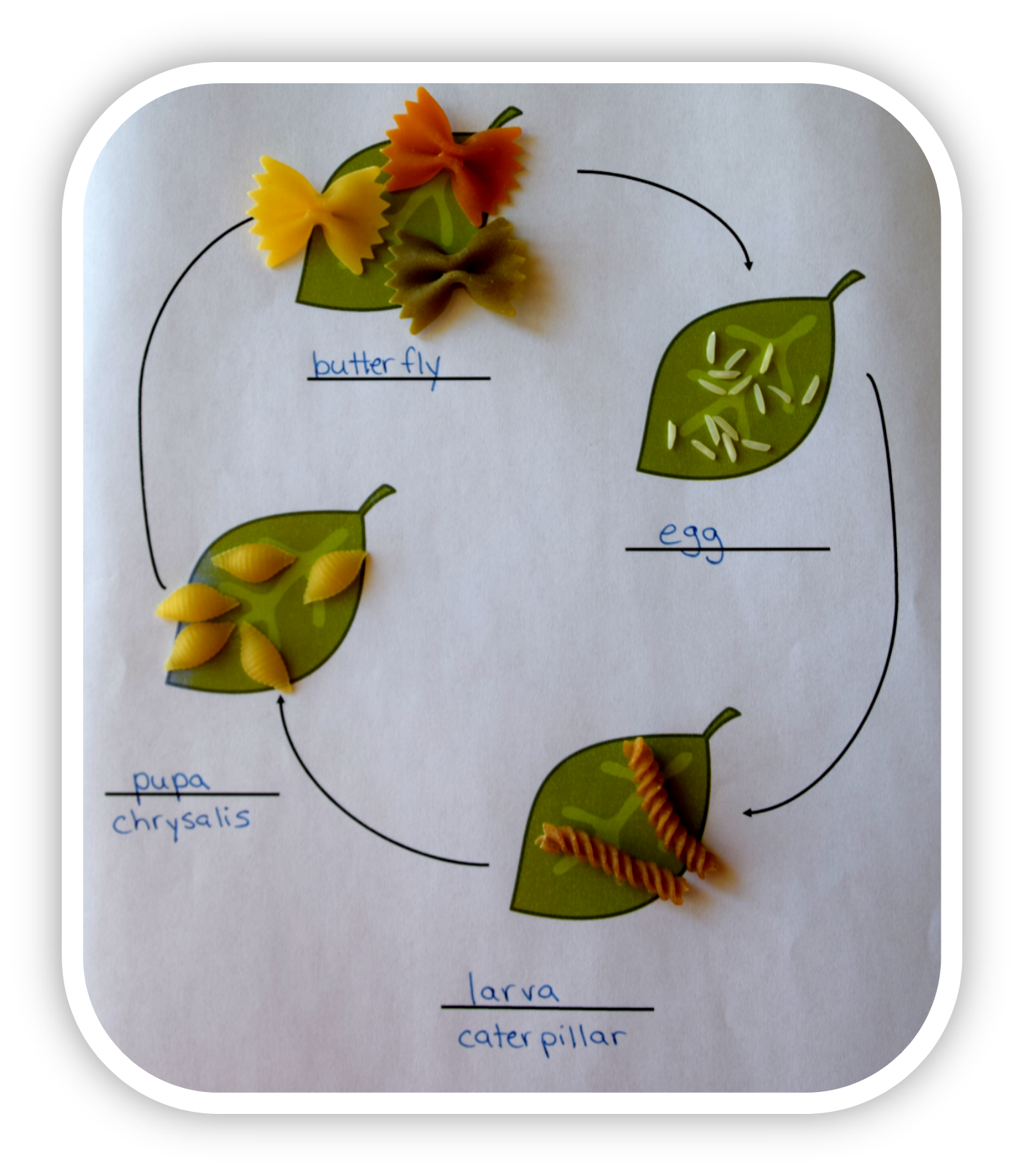Butterflies and moths are important pollinators too! When they drink nectar from flowers, they move pollen around in a plant, and carry it to other flowers as well. Try out this inexpensive and fun craft to learn about the lifecycle of a butterfly! All you need is some pasta, white glue, markers, and the activity sheet. Check out our resources for learning more about local butterflies and how to protect our pollinators!
What You’ll Need
Small amounts of 4 different types of pasta: bow ties, rotini, shells, and orzo
White glue
A printout of the Butterfly Life Cycle sheet
Markers, pens, or pencils
What To Do
Print the Lifecycle of a Butterfly page.
Use glue to attach pieces of pasta to the paper to represent the different stages. Make sure to do them in order!
Label each stage of the life cycle:
Butterflies lay their tiny eggs on leaves. Use rice to represent eggs.
When the egg hatches, out comes a caterpillar. The caterpillar eats and eats until it forms itself into a chrysalis. Use fusilli pasta to represent a caterpillar (larva).
Inside the chrysalis, the caterpillar is changing into a butterfly. Use shell pasta to represent the chrysalis (pupa).
A butterfly emerges from the chrysalis. Use bow tie pasta to represent a butterfly.
Ask Yourself
Did you get the lifecycle in order on the first try?
Butterflies are one type of pollinator. What other creatures are pollinators?



